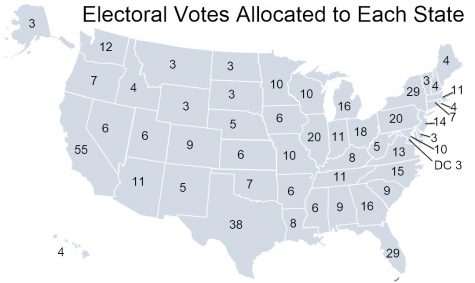Head to Head: Do Personal Lives of Politicians Matter?
February 20, 2018
Personal Lives Don’t Matter
by Graham Brown
In a world in which the main vote-getting tactics of politicians are to connect with the people as everyday citizens, it is ironic—perhaps even comical—that we hold them to superficial standards regarding their personal and private lives. Since something like an affair can have such devastating repercussions, these transgression will often lead to a domino effect of cover-ups and lying. In the case of Bill Clinton, he was impeached not due to his affair with intern Monica Lewinsky, but for perjury and obstruction of justice—or, in other words, lying about his affair.
Now, here in Missouri, Governor Eric Greitens has admitted to an extramarital affair, which could have serious political ramifications. The St. Louis Post-Dispatch said that his presidential ambitions are on “life-support,” and that may be a generous term. Before going further, however, a disclaimer is necessary. Obviously the charges involving the governor are far more heinous than just an affair, including kidnapping and blackmail. Clearly, these expand far beyond the reach of just “personal life,” so for the sake of this argument, I will only be discussing the admittance of an affair.
Our founding fathers set up our government so it would be a representative of the people serving in office. We don’t want people judging our personal lives, and they shouldn’t have the right to. In fact, this idea was so important to our founding fathers that they created a constitutional amendment concerning it: the Fourth Amendment, which affirms the “right of the people to be secure in their persons, houses, papers, and effects” without fear of unreasonable violations. To throw this out the window or for our elected officials, whose job it is to uphold the Constitution, is plain wrong.
Another important note is that none of us should be judged by the worst thing we’ve done in our lives. This point has been made by a lot of people, although journalist Matt Bai may have done it best in his book All the Truth is Out: The Day Politics Went Tabloid.
Bai writes: “As an industry, we aspired chiefly to show politicians for the impossibly flawed human beings they are: a single-minded pursuit that reduced complex careers to isolated transgressions. As the former senator Bob Kerrey, who has acknowledged participating in an atrocity as a soldier in Vietnam, told me once, ‘We’re not the worst thing we’ve ever done in our lives, and there’s a tendency to think that we are.’ That quote, I thought, should have been posted on the wall of every newsroom in the country, just to remind us that it was true.”
Bai is dead-on here. To be judged solely for our imperfections is unfair. There are plenty more important issues then that and we need to look at the full picture before making a choice on an elected official. Judging someone and ruining their aspirations for a mistake they made 20 years in the past is wrong. Former Massachusetts Senator Ted Kennedy was never able to become president because of a 1969 incident where he left the scene of an accident and his passenger died. Even 11 years later, when he tried to win the Democratic nomination over President Jimmy Carter, he was ripped by the public and the press so badly he never ran for the office again.
It is brazenly unfair to attack politicians for one mistake in their lifetimes, and instead they should be judged on how they will serve their constituents. After all, politicians are humans just like us.
Personal Lives Of Politicians Matter
by Alison Gill
Imagine a professional athlete. Pick anyone you want: Tom Brady, Lebron James, Serena Williams—it doesn’t matter. Now, imagine that there was a scandal involving this athlete.
For instance, let’s suppose that Brady, with one passenger, was involved in a one-car crash in which he drove off a bridge into a tidal channel. He escapes the drowning vehicle, leaves the scene, and fails to report the accident to the police until the car is found the next day. Meanwhile, his fellow passenger dies in the submerged car.
Or suppose that a middle-aged James admits to sexual involvement with a minor. This minor is seventeen years old and works as an intern for one of James’ business operations. James never does apologize for engaging in a relationship with a person two decades his junior, though he does call it “a very serious error in judgement.”
Or suppose that Williams acknowledges her use of a high profile prostitution ring, after being ousted as a regular customer. Shortly thereafter, another brothel comes forward claiming that she frequented it, and then another prostitute accuses Williams of weekly visits during the decade prior. The public is reminded of Williams’ previous strongly-worded editorial that attacked a prominent adulterer with questions of his personal moral fitness.
If any of these things ever happened, the athletes would pay the price. They would lose respect, endorsements, influence, wealth, fans, support, and their status as role models. Tiger Woods certainly suffered the consequences in the aftermath of his infidelity scandal, losing family, hundreds of millions of dollars, and confidence.
All of the aforementioned incidents did occur, only with politicians instead of athletes. And, for these politicians, none seemed to withstand severe harm to their careers. Senator Edward Kennedy drove off a bridge and abandoned his fellow passenger as she drowned; he was re-elected for Senate the next year and served another seven terms. Representative Gerry Studds had an affair with a seventeen-year-old congressional page; he was re-elected to the House another six times. Senator David Vitter was involved in the highly-publicized “D.C. Madame” prostitution scandal; he was re-elected to the Senate. In fact, according to research done by political scientist Scott Basinger, 60% of scandal-tainted incumbents ultimately end up back in Congress.
The personal lives of politicians matter because of their position. A politician is endowed with great power, and so we should be assured, by their behavior in public and in private, that our elected officials are deserving of our trust. We should hope that the people who are charged with setting American policy can exhibit the exemplary decision-making abilities in their private lives that we expect of them regarding foreign policy or economic position.
These are the people we have elected to represent America internationally, our state nationally, and our community locally. We don’t want the faces of our nation to be of poor character. In theory, politicians should actually represent the best of us—yes, they should be humans but humans of exceptional honor and reliability in all facets. We elect a politician to be a reflection of our political and often social character. Why should they earn a pass on reflecting our moral character?
As we near voting age, dwell on the personal live of any politician and explore whether this is a person deserving of their position. Allow the words of Richard Nixon (ironically enough) to remind you: “With all the power that a president has, the most important thing to bear in mind is this: You must not give power to a man unless, above everything else, he has character. Character is the most important qualification the president of the United States can have.”




